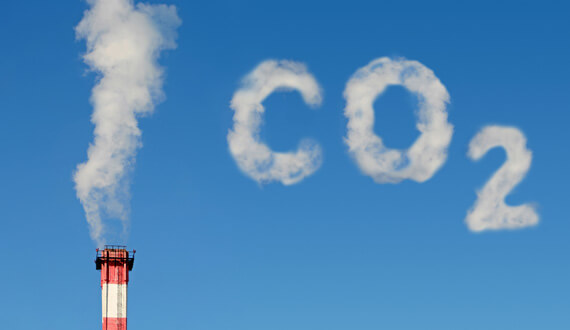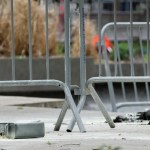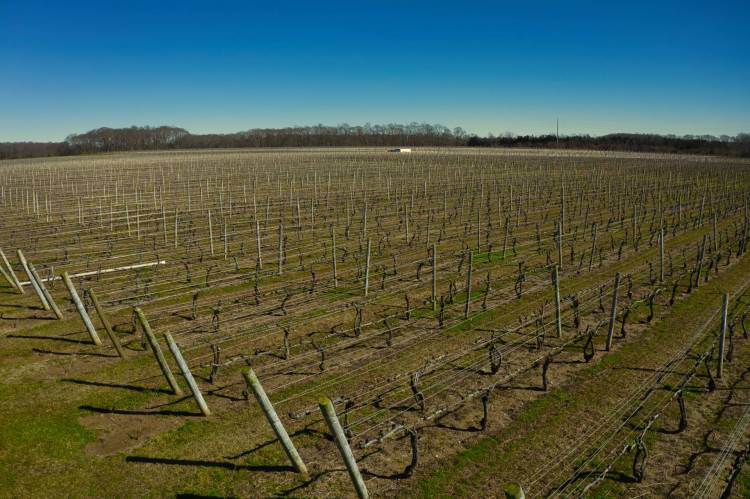 Under draft regulations developed by the New York State Department of Environmental Conservation new or expanding electric generating facilities in New York would be required to evaluate the potential disproportionate impacts on nearby environmental justice communities, DEC Commissioner Joe Martens announced today. The proposed regulations are the first in the country to require an environmental justice analysis in the siting of major electric generating facilities.
Under draft regulations developed by the New York State Department of Environmental Conservation new or expanding electric generating facilities in New York would be required to evaluate the potential disproportionate impacts on nearby environmental justice communities, DEC Commissioner Joe Martens announced today. The proposed regulations are the first in the country to require an environmental justice analysis in the siting of major electric generating facilities.
Additional regulations proposed by DEC will limit carbon dioxide (CO2) emissions from new major electric generating facilities and certain expansions at existing electric generating facilities.
DEC developed the proposed regulations (6 NYCRR Part 487 and 6 NYCRR Part 251) as required by the Power NY Act of 2011, which Governor Andrew M. Cuomo signed into law in August 2011.
Environmental Justice Regulations
The proposed regulations in Part 487 will establish a regulatory framework to analyze environmental justice issues associated with the siting or expansion of major electric generating facilities, the first of their kind in the nation.
During the siting of major electric generating facilities, the proposed regulations require applicants to evaluate the significant and adverse disproportionate environmental impacts, if any, which may result from the facility’s construction or operation.
“Negative environmental impacts from industrial operations like power plants often disproportionately affect environmental justice communities,” DEC Commissioner Martens said. “Under our proposed regulations, an applicant must undertake an environmental justice analysis if a proposed electric generating facility’s potential adverse environmental and public health impacts may affect an environmental justice area. Our proposed regulations are the first in the nation that seek to protect public health and the environment in overburdened communities.”
The draft regulations require applicants to evaluate:
- the significant and adverse disproportionate environmental impacts of a proposed major electric generating facility, if any, resulting from its construction or operation;
- the cumulative impact on air quality; and
- the demographic, economic and physical description of the community where the facility will be located, compared and contrasted to the county and adjacent communities
Carbon Dioxide Emission Regulations
The proposed regulations in Part 251 would establish CO2 emission limits for proposed new major electric generating facilities that have a generating capacity of at least 25 megawatts, and for increases in capacity of at least 25 megawatts at existing electric generating facilities.
“Carbon dioxide emissions are chief contributors to climate change,” Martens said. “We are proposing CO2 emissions limits for new and expanding power plants to further reduce the carbon footprint of New York’s power sector.”
The proposed carbon dioxide emission regulations will:
- set a CO2 emission limit of 925 lbs/mw-hr (output-based limit) or 120lbs/mmBtu (input-based limit) for most new or expanded base load fossil fuel-fired plants;
- set a CO2 emission limit of 1450 lbs/mw-hr (output-based limit) or 160 lbs/mmBtu (input-based limit) for simple cycle combustion turbines;
- allow each facility’s owner or operator to choose whether to comply with the relevant output-based or input-based emission limits;
- provide for DEC to set case-specific CO2 emission limits for certain power plants that fire non-fossil fuels
- require recordkeeping, monitoring and reporting consistent with existing state and federal regulations.
Under existing regulations, power plants in the state are required to comply with New York’s Regional Greenhouse Gas Initiative (RGGI) program, as well as certain federal requirements regarding greenhouse gas emissions. The proposed Part 251 will, for the first time, establish a specific limit on the allowable CO2 emission rate of new and expanded power plants and will make New York one of only a few states in the country with a CO2 performance standard for both new and expanding power plants.
Public Comment
Public hearings for both proposed regulations will be held around the state in locations reasonably accessible to persons with impaired mobility. Anyone who wishes to make a statement at the hearings is invited to speak. Hearings will be held:
- Monday, March 5, 2012 – 3 p.m.
NYS Department of Environmental Conservation Central Office
625 Broadway, Room 129, Albany - Tuesday, March 6, 2012 – 3 p.m.
NYS Department of Public Service
90 Church Street, 4th Floor, NYC - Thursday, March 8, 2012 – 3 p.m.
NYS Department of Environmental Conservation Region 9 Office
270 Michigan Avenue, Hearing Room, Buffalo
One hour prior to each hearing (2 p.m. – 3 p.m.), public information sessions for Part 487 will be held at the same locations. DEC staff will answer questions from the public about the environmental justice regulations during this time, but the dialogue will not be part of the official hearing record.
DEC will provide interpreter services for deaf persons at no charge. Written requests for interpreter services are required and should be submitted by February 20, 2012, to Laura Stevens, NYSDEC, 625 Broadway, Albany, NY 12233, (518) 402-8451 or e-mail airregs@gw.dec.state.ny.us.
To request additional information on Part 487, or to submit comments on record, contact Melvin Norris, NYSDEC Office of Environmental Justice, 625 Broadway, Albany, NY 12233, (518) 402-8556 or e-mail: EJcomments@gw.dec.state.ny.us. Written comments may be submitted to DEC until Thursday, March 15, 2012 at 5 p.m.
To request additional information on Part 251, or to submit comments on record, contact Michael Jennings, NYSDEC Division of Air Resources, 625 Broadway, Albany, NY 12233, (518) 402-8403 or e-mail: 251GHG@gw.dec.state.ny.us. Written comments may be submitted to DEC until Thursday, March 15, 2012 at 5 p.m.
For more information on the proposed regulations, visit:


























